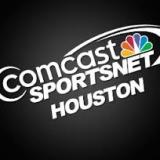Judge Denies Astros' Stay Request in CSN Houston Bankruptcy Case
The smarter way to stay on top of the multichannel video marketplace. Sign up below.
You are now subscribed
Your newsletter sign-up was successful

U.S. bankruptcy judge Marvin Isgur has denied the Houston Astros’ request to stay reorganization proceedings for regional sports network CSN Houston.
Isgur, who on Feb. 5 placed the parent company of the embattled RSN that carries Astros' MLB contests and Houston Rockets NBA games under Chapter 11 bankruptcy protection, said he didn’t expect the Astros to be succeed in their appeal of his ruling.
The MLB team has appealed the RSN’s Chapter 11 status to U.S. District Judge Lynn Hughes and had asked Isgur to delay implementation of any efforts to reorganize the network. The club’s owner Jim Crane wants to remove the team’s media rights from the RSN, which is 46.5%-owned by the Astros, 31% by the Rockets and 22.5% by Comcast-NBCUniversal.
Isgur last week ordered that the limited partnership Houston Regional Sports Network -- the company behind the 17-month-old RSN that has only been able to secure distribution pacts with Comcast and a handful of smaller providers in the Houston market -- be placed under Chapter 11 protection. Last Sept. 27, four companies affiliated with Comcast sought the move, with one of them, Houston SportsNet Finance, saying it was owed $100 million from a loan that was spent on start-up costs and the building of the RSN’s studio facilities. The Rockets also supported the bankruptcy play.
RSNs typically derive 70%-80% of their revenue from license fees. With CSN Houston unable to score deals with most of the major MPVDs, the network, managed by Comcast-NBCU, could not meet its rights obligations.
Isgur's order means the RSN -- presumably pending the Astros' appeal -- will remain in operation as the three partners try to work out a successful reorganization plan.
In placing CSN Houston under chapter 11, Isgur appointed four fiduciary directors – one from each of the teams and a pair from Comcast-NBCU – who are now legally obligated to act in the best interest of the RSN and would be subject to legal redress if they don't. Under CSN Houston’s original governance, the parties had the same structure in place, but it required unanimity of opinion from all four on key operating decisions, including affiliate agreements. The difference now is that an objecting party could not hold up an action if it's deemed to be in the best interest of the entity.
The smarter way to stay on top of the multichannel video marketplace. Sign up below.
Astros general counsel Gilles Kibbe will serve as the fiduciary for the Astros, while Rockets CEO Tad Brown is in that role for the NBA squad. Comcast-NBCU is expected to declare its two representatives next week. The fiduciaries are being repped by Haynes and Boone LLP. The law firm didn’t answer a question by press time about which entity would be leading affiliate negotiations under the bankruptcy order.
Asking for $3.40 in monthly subscriber fees, Comcast-NBCU was unable to reach agreements with DirecTV, Dish Network, AT&T U-verse, and Suddenlink, among others in its TV territory. Isgur granted Crane and then the Rockets the opportunity to serve as lead negotiators and try and bridge those distribution differences.
Brown, during the Feb. 5 hearing, indicated that as recently as Feb. 3, the Rockets believed they were close to "a carriage solution with the primary partners with long-term incentives to support the success of the network." He did not identify the distributors or say why the plan fell short.
Meanwhile, Crane has explored the possibility of airing Astros games on MLB Network within the team’s five-state TV territory of Texas, Louisiana, Oklahoma, Arkansas and New Mexico. MLB Network, which has the technical capability to split its feed, confirmed that Crane reached out to it regarding possible telecasts, but declined further comment.
MLB Network is owned in part by Comcast’s NBC Sports Group.
